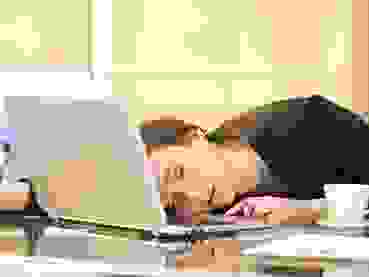
Sleep is relaxation for the brain
Restful sleep is a prerequisite for good general health and it promotes productivity. In addition, sleep has a positive effect on the immune system. This is important, although perhaps not of great help in the current Corona virus situation. On the other hand, especially at the moment, it is not always easy to maintain sleep hygiene. Here you can find the most important tips.
April 16, 2020
Here we have put together the most important tips for a good and restful sleep. Do you already know these tips? Benefit by reading them again and consider whether you already comply with these points or can adjust something.
Regular bedtime
- Going to bed regularly at the same time leads to a sleep-wake rhythm in the body and psyche and the internal clock adjusts to it. Even if everyday life has changed (for example because you are working from home), it is important to have a rhythm for a healthy sleep.
- An afternoon nap should be avoided at first, so that tiredness is greater in the evening and falling asleep is easier.
The bed is for sleeping
- Only go to bed when you are really tired.
- Do not take work or your mobile phone to bed. Do not read anything that can get you worked up, for example business e-mails. Also no social media or news portals.
- You should use your mobile phone only as an alarm clock, so it is best to set the alarm outside the bedroom and then place the mobile phone with alarm set next to your bed. A regular time to wake up – even when working from home - can help to keep the sleep-wake rhythm and increase productivity.
- Avoid bright light at night because it can act as a wake-up call.
Surroundings
- Set up the bedroom comfortably and try to banish everything from the bedroom that could distract you from sleep (apart from the children, of course, if they share your bedroom).
- A suitable room temperature for sleeping is about 16 - 18 degrees C.
- A little fresh air in the bedroom just before going to bed gives a pleasant atmosphere.
Avoid evening consumption
- From the afternoon onwards, try to avoid caffeinated sodas, energy drinks and coffee.
- Smoking and alcohol can disturb your sleep.
- Eat light and easily digestible meals in the evening (and preferably not too late).
Relax
- A delicious cup of herbal tea, relaxing music or meditation can help the body to wind down and prepare for sleep.
- Herbal remedies can gently support sleep. Valerian root and hop cones have proven to be particularly effective, as they soothe and allow you to have a restful sleep.
- If you cannot switch off properly or if you cannot relax, relaxation techniques such as autogenic training or breathing exercises can often help.
Eliminate psychological causes
- If stress or anxiety leads to sleep problems, stress relief can help to make the night more restful. If mental illnesses such as depression lead to sleep disorders, then treatment of the underlying illness with psychotherapy or medication can often improve your sleep.
- Are you still concerned by personal matters or your current situation? Try talking to someone about it. It does not matter whether you seek professional help or have someone in your circle of friends whom you can trust. Talking about it is the important thing. Sometimes a view from the outside brings new perspective and other ways of dealing with the situation.
Caution
- Many sleep apps or sports watches can be used as so-called sleep trackers. There is nothing wrong with this if they are used with caution. Tracking can give you an indication or confirm a feeling about your own sleep quality. However, it can also affect your perception negatively or positively. Therefore, we advise you not to concentrate too much on these trackers and instead to rely on your evaluations.
Bonus 1
- The current changes caused by the Corona virus and the uncertain view of the future can also lead to restless sleep or difficulty in falling asleep. Try to follow the tips above and stick to these sleep hygiene measures.
Bonus 2
- In the current situation, many people are lacking exercise, or even just getting some fresh air. Short walks can compensate for a lack of physical activity, as well as giving our brain a short break. Concentrate on the nature around you or listen to your inner self and try to see how you are really feeling.
We wish you a relaxing and pleasant night’s sleep!
Topics
Filter blog posts by topic by clicking on the tags.





